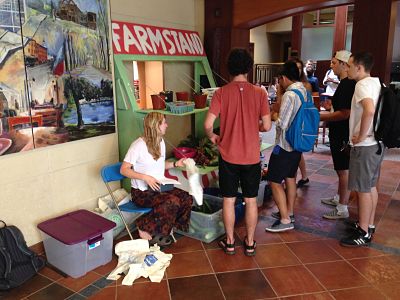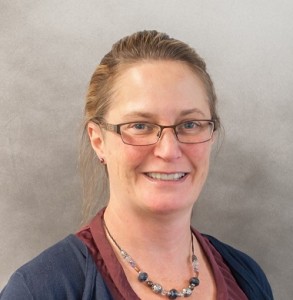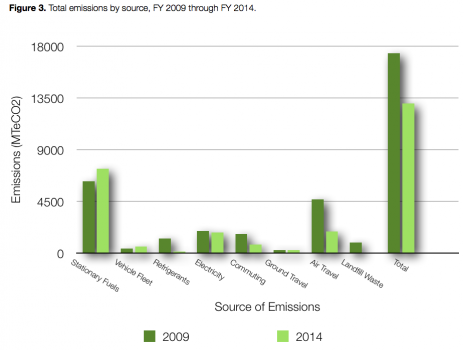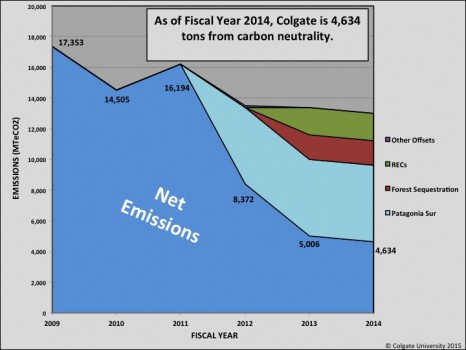By: Andrew Yurcik ’15 (Environmental Geography Major from Pelham, NY)
With winter in full swing and no more holidays to provide us with warmth, many of us have chosen to crank the heat in our rooms with little thought to the environmental consequences. Warmth and comfort is seen as a necessity, and as a result most people have little remorse when turning up their heat as the temperature continues to drop outside. Compared to recycling or composting, there is a much larger disconnect between turning up your heat and realizing how the environment will be impacted. Frequently people will continue to pump their rooms and homes full of hot air even after they’ve left for the day. This issue is exacerbated on college campuses where young students continue to heat their rooms unaware of the expenses paid by the school and the environment. Space heating can take up to 50 percent of a home’s energy use so the question remains: how can Colgate and other college students can become more sustainable about their energy use?
- Lowering your heat at night: By lowering your heat by several degrees you can reduce yearly energy use by up to 10 percent. Instead, by using warm comforters and wearing layers at night, students can remain comfortable.
- Use insulation strips: Buying insulation strips from local hardware stores is relatively cheap and can cut heat escaping from windows by up to 50 percent.
- Only heat specific room: Similar to lights you don’t need to use energy in rooms you are not using
- Bundle up: Warm accessories such as warm socks or scarves greatly reduce your need for heating.
- Cuddle: Whether it’s with your significant other or roommate who’s finally accepted your weirdness, you can reduce your impact together.
- Be an example: By acting sustainably your peers will notice and may mimic your good habits
In a place such as Colgate where some will say summer is from May to September and then the rest is winter understanding how to best mange heating and energy is paramount for being sustainable. We should all endeavor to become a community focused on using and planning energy in the most efficient ways.







